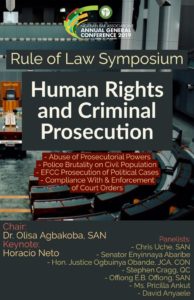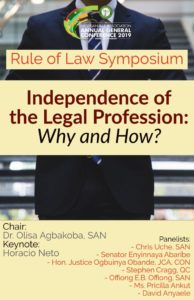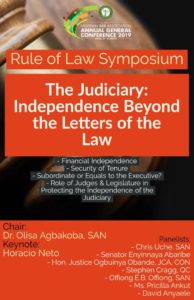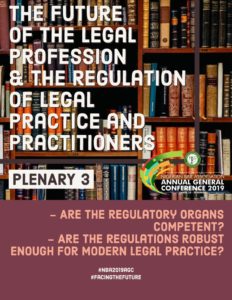



Treason and Treasonable Offence under The Nigerian Legal Jurisprudence – By Adesuyi Daramola, Esq.
While there has only been one major treason allegation in the past nineteen years since the end of military rule, there have recently been an accusation of treason. These allegations can be seen in the context of the Criminal law in Nigeria.

Treason has its recorded historical roots in the ancient Greek and Roman Empires where the concept was initially developed, although mostly for crimes against the monarch rather than the state in general. Broadly speaking treason can be defined as “the crime of committing an attack upon institutions which the ruling groups in a community recognised as essential to the continued existence of the community as constituted at the time”.
What are the Conducts amounting to Treason and Treasonable Felonies under the Nigerian legal Jurisprudence?
Section 37(1) of the Criminal Code Act defines Treason as follows;
(a) Any person who levies war against the state, in order to intimidate or overawe the President or the governor of a state is guilty of treason and is liable to the punishment of death.
(b) Any person conspiring with any person, either within or without Nigeria, to levy war against the state with the intent to cause levying of war as would be treason if committed by a citizen of Nigeria, is guilty of treason and is liable to punishment of death.
Again, by section 38 of the Criminal Code any person who instigates any foreigner to invade Nigeria with an Armed force is guilty of treason and is liable to the punishment of death.
Based on the provisions of the Criminal Code Act, to allege treason, levying war is an essential factor to be considered. According to the English law, levying war refers to the assembling of a body of men for the purpose of effecting by force a treasonable object; and all who perform any part however minute, or however remote from the scene of action, and who are leagued in the general conspiracy are considered as engaged in levying war.
Section 40 of the 1999 constitution provides that, “Every person shall be entitled to assemble freely and associate with other persons, and in particular he may form or belong to any political party, trade union or any other association for the protection of his interest”. Since human rights are enshrined in our constitution, it follows therefore that the provisions containing our fundamental rights are also binding on government. The difference between the definition of levying war and the freedom of association is the use of “force”
An action to challenge the government should not be mis-interpreted to mean treason by law enforcement agencies. Peaceful protest and other solidarity activities show no desire to overthrow the government through unlawful means. However, the rhetoric is a concern and reflects the view that criticism of government actions is a threat to the stability of the state. This is clearly misguided in a constitutional democracy.



Newswire, we present the world of law and the issues that engage them. This edition is yet again, ‘Mind-blowing’. Go get your copy(ies) Now!







